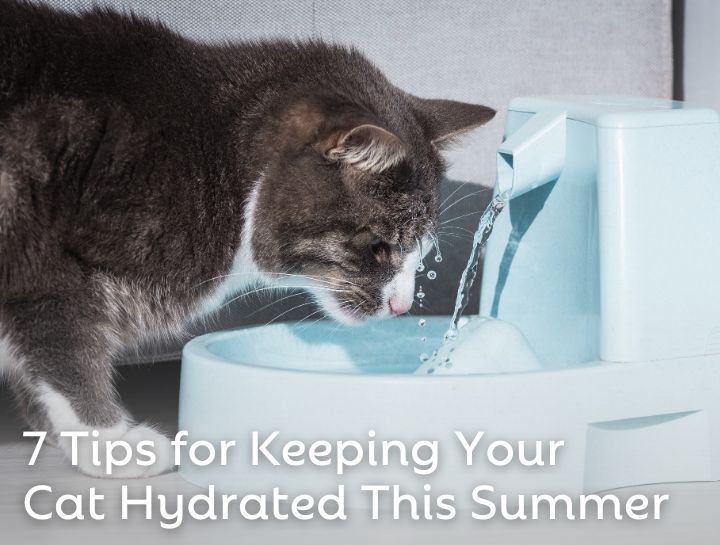7 Tips for Keeping Your Cat Hydrated This Summer

July is a special month for our feline friends as we observe National Pet Hydration Awareness Month, dedicated to promoting the importance of proper hydration for cats. As responsible pet owners, we often prioritize their nutrition and well-being but sometimes overlook the significance of keeping our beloved cats well-hydrated. With this in mind, let's dive into some essential tips and information to ensure your cat stays hydrated and healthy all year round.
The Significance of Hydration for Cats
Water is a vital component for the overall health and well-being of our furry companions. Adequate hydration is necessary to support vital bodily functions, including digestion, organ function, temperature regulation, and nutrient absorption. By maintaining proper hydration levels, we can help prevent urinary tract problems, kidney diseases, and other related health issues in cats.
Understanding a Cat's Hydration Needs
Cats have a naturally low thirst drive compared to other animals. In the wild, their ancestors obtained much of their hydration from their prey, which consisted of moisture-rich meat. Domesticated cats, however, rely on their human caregivers to provide them with sufficient water intake.
Promoting Hydration for Your Cat
The following tips will help keep your cat hydrated!
Fresh and Clean Water
Ensure your cat has access to fresh and clean water at all times. Cats are known to be picky drinkers, so consider using a wide and shallow water bowl to accommodate their whiskers and keep the water fresh by changing it daily.
Multiple Water Stations
Place multiple water stations around your home, especially in rooms where your cat spends most of their time. This encourages regular hydration and prevents them from relying on a single source.
Water Fountains & Sipping from the Sink
Consider investing in a cat water fountain. Cats are instinctively attracted to running water, and a fountain can entice them to drink more frequently. The continuous flow also helps in keeping the water oxygenated and appealing. Be sure to clean the water fountain regularly! Alternatively, some cats enjoy sipping from the sink!
Wet Food Diet
Talk to your veterinarian about including wet or canned cat food in their diet. Wet food typically contains higher water content, aiding in hydration. If your cat is on a dry food diet, consider adding water or low sodium broth to increase moisture intake.
Cat-Friendly Drinking Option
Cats prefer drinking from wide, shallow bowls rather than deep ones. Avoid using plastic bowls as they can retain bacteria and affect the water's taste. Stainless steel or ceramic bowls are excellent alternatives.
Monitoring Hydration
Monitor your cat's hydration levels by observing their litter box habits. Dehydration can lead to concentrated urine and decreased frequency of urination. If you notice any abnormalities, consult your veterinarian.
As we celebrate National Pet Hydration Awareness Month, let's remember that a well-hydrated cat is a healthy cat. By implementing these tips and understanding your feline companion's hydration needs, you can ensure their well-being and prevent potential health issues. Regularly assessing their water intake and providing them with fresh and appealing drinking options will go a long way in maintaining their overall health and happiness.
If you have questions about keeping your cat hydrated or would like to schedule an appointment here at Cat Care Clinic, give us a call at (317) 844-2287!
